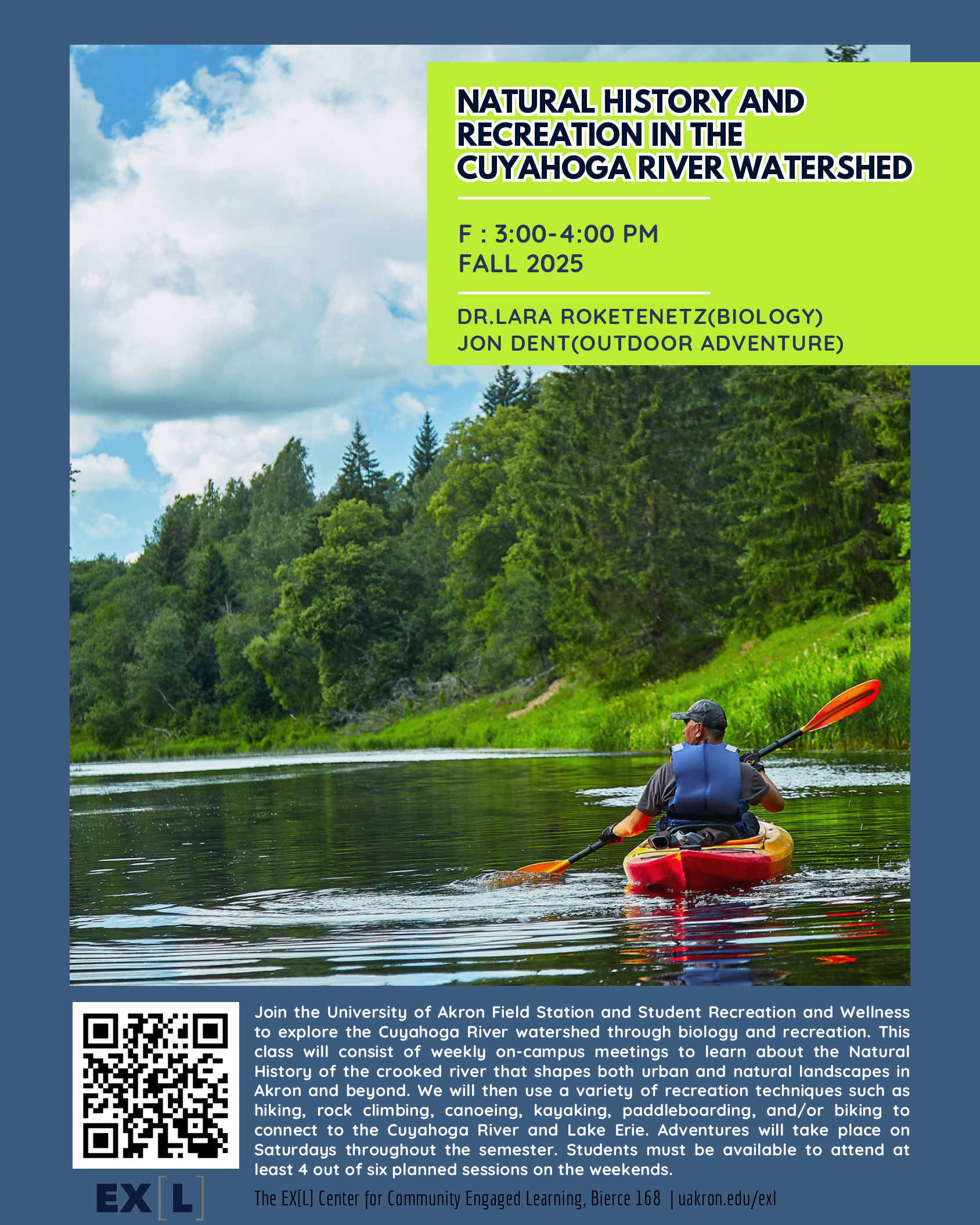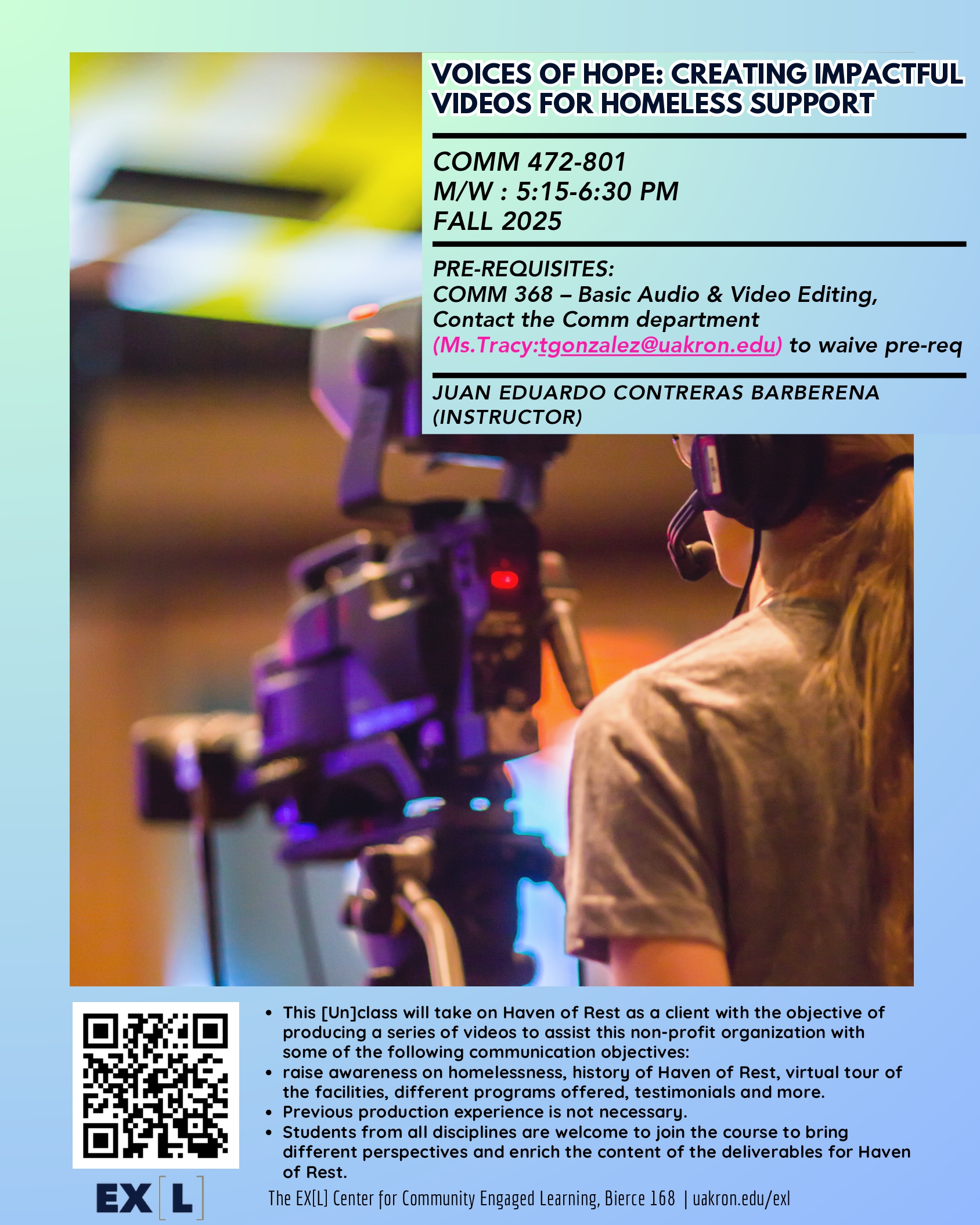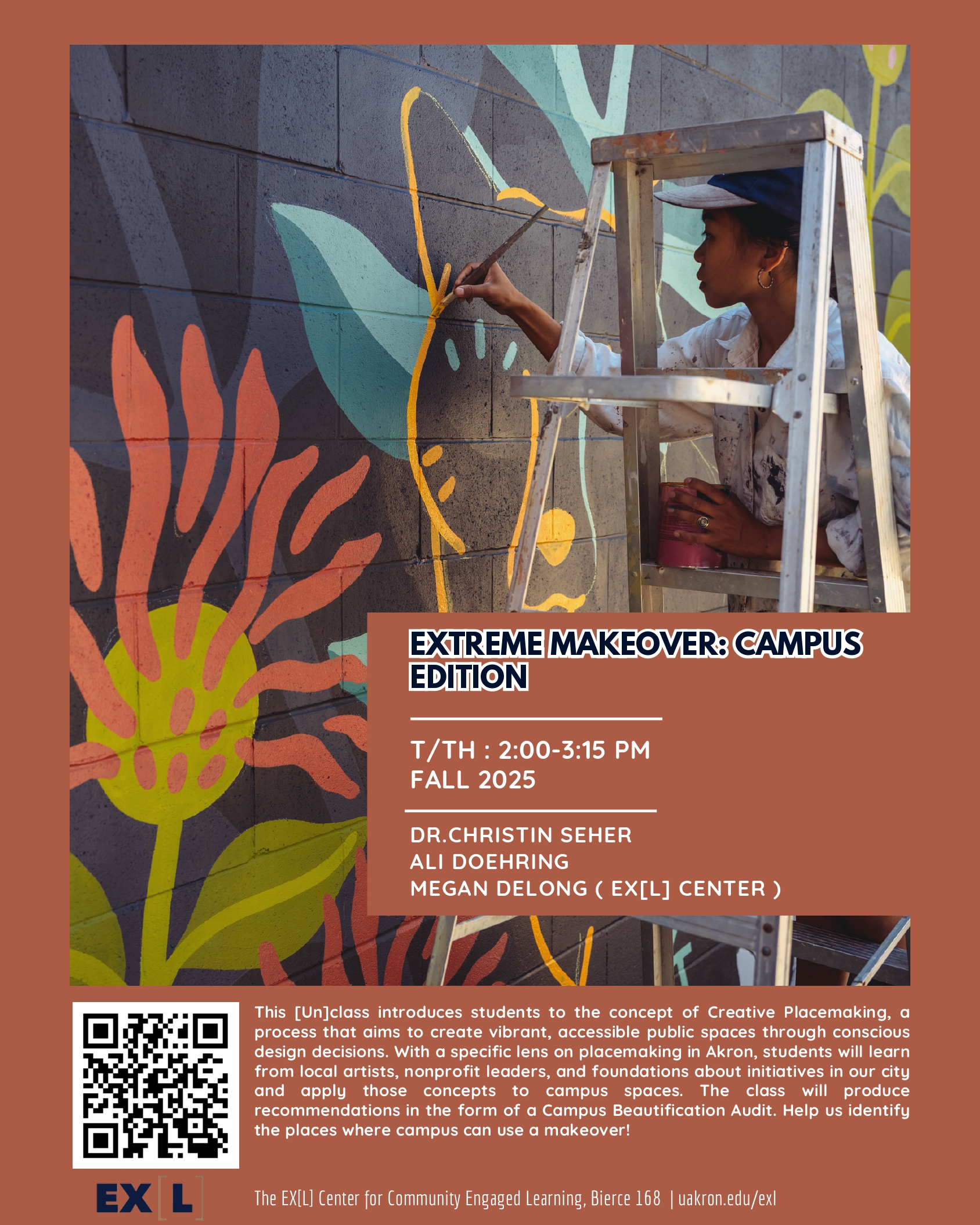[Un]classes
A community-engaged learning model for Akron
[Un]classes break the mold of a traditional class by being unscripted, transdisciplinary, community-engaged courses that lead to real-world impact. They provide a uniquely Akron way to investigate topics of local relevance, generate meaningful solutions, and learn alongside community experts. Faculty and students work closely together to craft the class and students have a voice in the course design, topics of study, and projects. [Un]classes offer an opportunity to connect fields of study to real-world issues participants feel passionate about.
In an [Un]class, students will exercise creative imagination and problem-solving skills, demonstrate growth through self-discovery, learn about local issues, and connect to Akron communities.
67
[Un]classes offered since 2016
60+
Unique [Un]class instructors
660+
University of Akron students reached
How to register for [Un]classes
A step-by-step guide about how to find classes, sign up and more through Workday.

94%
experienced growth in or applied their skills in creative/innovative thinking from [Un]class

87%
agree/strongly agree that the [Un]class strengthened their connection to the community/city of Akron
80%
agree/strongly agree the [Un]class increased their connection to UA
Fall 2025 [Un]classes
 NATURAL HISTORY AND RECREATION IN THE
NATURAL HISTORY AND RECREATION IN THE
CUYAHOGA RIVER WATERSHED
F : 3:00-4:00 PM
FALL 2025
DR. LARA ROKETENETZ (BIOLOGY)
JON DENT (Outdoor Adventure)
Join the University of Akron Field Station and Student Recreation and Wellness to explore the Cuyahoga River watershed through biology and recreation. This class will consist of weekly on-campus meetings to learn about the Natural History of the crooked river that shapes both urban and natural landscapes in Akron and beyond. We will then use a variety of recreation techniques such as hiking, rock climbing, canoeing, kayaking, paddleboarding, and/or biking to connect to the Cuyahoga River and Lake Erie. Adventures will take place on Saturdays throughout the semester. Students must be available to attend at least 4 out of six planned sessions on the weekends.
 VOICES OF HOPE: CREATING IMPACTFUL
VOICES OF HOPE: CREATING IMPACTFUL
VIDEOS FOR HOMELESS SUPPORT
COMM 472-801
M/W : 5:15-6:30 PM
FALL 2025
PRE-REQUISITES:
COMM 368 – Basic Audio & Video Editing,
Contact the department to waive the pre-req (Ms.Tracy:tgonzalez@uakron.edu)
JUAN EDUARDO CONTRERAS BARBERENA (COMMUNICATION)
This [Un]class will take on Haven of Rest as a client with the objective of producing a series of videos to assist this non-profit organization with some of the following communication objectives: raise awareness on homelessness, history of Haven of Rest, virtual tour of the facilities, different programs offered, testimonials and more.
Previous production experience is not necessary. Students from all disciplines are welcome to join the course to bring different perspectives and enrich the content of the deliverables for Haven of Rest.
 EXTREME MAKEOVER: CAMPUS EDITION
EXTREME MAKEOVER: CAMPUS EDITION
T/TH : 2:00-3:15 PM
FALL 2025
DR.CHRISTIN SEHER (EX[L] CENTER)
ALISON DOEHRING (ZIP ASSIST)
MEGAN DELONG ( EX[L] CENTER)
This [Un]class introduces students to the concept of Creative Placemaking, a process that aims to create vibrant, accessible public spaces through conscious design decisions. With a specific lens on placemaking in Akron, students will learn from local artists, nonprofit leaders, and foundations about initiatives in our city and apply those concepts to campus spaces. The class will produce recommendations in the form of a Campus Beautification Audit. Help us identify the places where campus can use a makeover!
Want to teach [Un]class? Email exl@uakron.edu with your ideas!
![EX[L] Center For Community Engaged Learning](/application/themes/uakron-2/images/stacked-ua.svg)